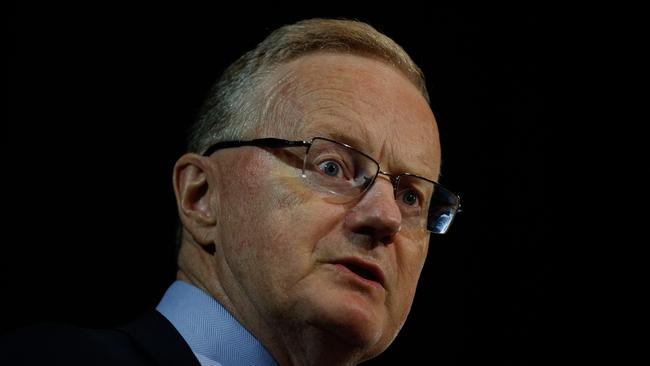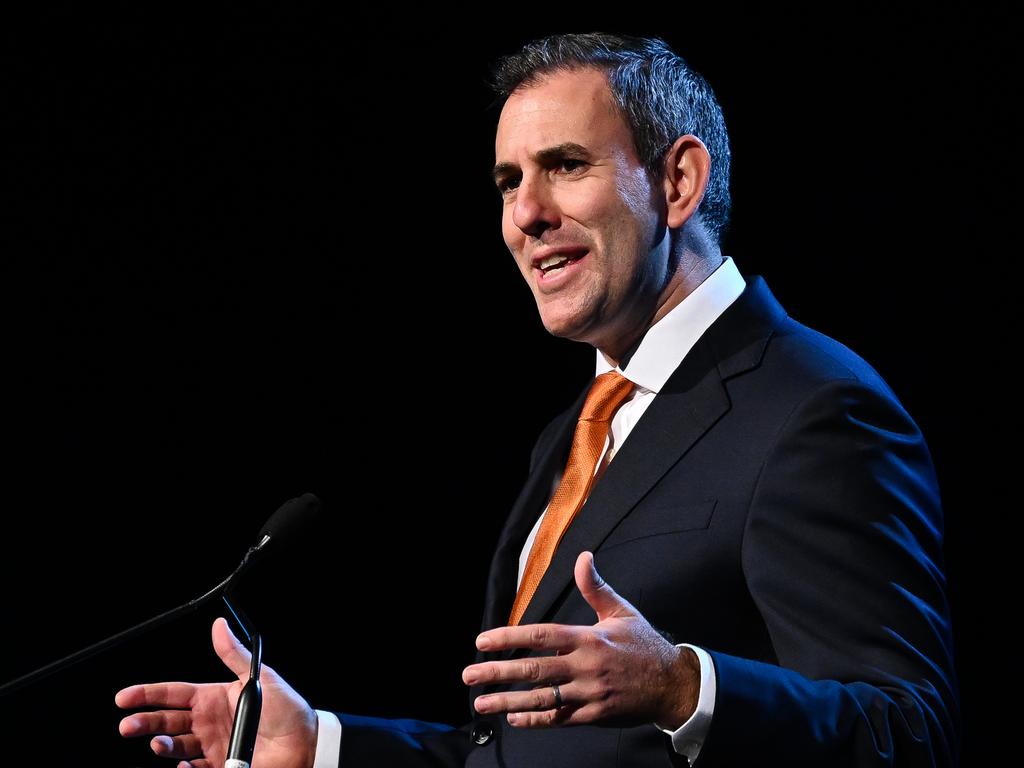
After seven crowded years as the nation’s monetary emperor, on Thursday Lowe shared the wisdom of a central banker’s 43 years of toil with the economists and financial market operatives who have hung on his every word during a tumultuous tenure.
For politicians, bureaucrats, business leaders, industry groups and journalists – the assorted crew with descending levels of influence and responsibility – the outgoing Reserve Bank governor had a crisp goodbye message: aim higher, work together, do better.
A conga line of inquiries has revealed a stack of things that can be done to fix the productivity malaise that is suppressing workers’ wages and making it more difficult to run the economy without stoking high inflation.
Just for starters, Lowe said, there are good proposals on tax, human capital accumulation, energy and infrastructure, the design of our cities, the approach to regulation and competition policy, industrial relations and the provision of government services.
“The problem is not a lack of ideas,” Lowe said.
“Instead, it is in building the consensus within society to implement some of these ideas.
“This is, fundamentally, a political problem, and it is a major problem.”
Lowe’s record is far from perfect, but his authority is undiminished, given his independence of mind, sense of duty, candidness and bravery that has not endeared him to Canberra’s major players on all sides of politics, the unions and populists motor mouths.
Lowe started at the RBA when the Fraser government had run out of ideas and a purpose, just before the reform era changed the country forever.
We’ve been on a long weekend, tools down, hungover, for years.
Right now, Albanese Labor is backsliding on key policies, such as industry policy and industrial relations, at sea on higher education and housing, but is looking like it will land reforms in climate and energy, infrastructure, disability services, competition and workforce participation.
But the criticism of the political class, and the media that feeds the beast, should be taken seriously.
Lowe has seen the dysfunction up close, tried to navigate it, but has not been able to alter the dynamic. It’s dispiriting, but more tragic if he’d never called it out.
Plus, straying into terrain he has usually avoided, Lowe said better budgeting, or fiscal policy, and co-ordination between Canberra and the RBA, would make for superior economic outcomes.
Lowe suggested a couple of fiscal innovations but institutions like Treasury, and big kahunas like Treasurers, do not surrender their control of the instruments of taxing and spending to independent boards. Oh yeah, democracy.
At the very least, as Lowe said, we need a credible fiscal framework that deals with the medium term and the “intertemporal budget constraint”, which means governments borrow today but the debt has to be serviced by future taxpayers.
Jim Chalmers has yet to sketch out hard fiscal rules, but is riding the vibe and sucking in every dollar of revenue while the commodity and jobs bonanza lasts.
Lowe leaves a nation that got through the pandemic on the strength of our balance sheet and policymakers who pushed cheap money to the limits of what central bankers have termed the “region of stability”.
Now, we’re swimming in an ocean of financial perils.
The task awaiting governor-designate Michele Bullock, achieving the RBA’s dual mandate of low inflation and full employment, is more daunting.
“My view is that it will be difficult to return to the earlier world in which inflation tracked in a very narrow range,” Lowe said.
“The increased prevalence of supply shocks, deglobalisation, climate change, the energy transition and shifts in demographics mean either steeper supply curves or more variable supply curves. “While this doesn’t mean that the inflation target can’t be achieved on average, it does mean that inflation is likely to be more variable around that target.”
After literally a near-death experience when his carotid artery split and led to a blood clot during a trip to Canada in 2016, Lowe said the episode instilled two lessons that influenced how he had gone about doing the top job.
The first, he said, was that uncertainty is a fact of life and we need to manage it.
The second was there is a lot to be grateful for or, in the oft-quoted words of his predecessor, “the glass is at least half full”.
Lowe fessed up to huge mistakes such as overdoing the stimulus during the pandemic and conceded the botched forward guidance on interest rates staying near zero until 2024 will be a cross he will bear to his grave.
In the end, in the “absence of a crystal ball” he outlined four of the fixed points that have grounded him during money’s wildest days.
First, the importance of strong credible frameworks for economic policy.
Second, the benefits of monetary and fiscal policy co-ordination.
Third, the necessity of lifting productivity growth.
Fourth, the need to pay attention to developments in credit and asset markets.
The other fixed point, of course, has been the solidity of 65 Martin Place, an institution undergoing a physical and cultural transformation. We’re on the cusp of the Bullock era.
Out of a job at the end of next week, Lowe had nothing to lose at his farewell, yet did not waste the crucial moment with excess vitriol or self pity. He’ll be missed.
Still, this was a kind of valediction forbidding mourning, as Donne had it, a virtuous man passing mildly by, a few regrets like all of us accumulate, but no shame.








Philip Lowe has landed a delicate valedictory speech that coolly foreshadows an inexorable slide in Australia’s living standards if we don’t shake ourselves out of our political and cultural daze.